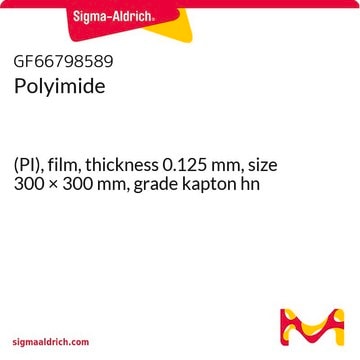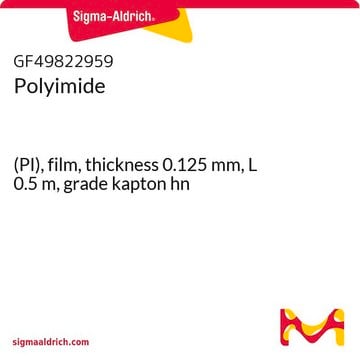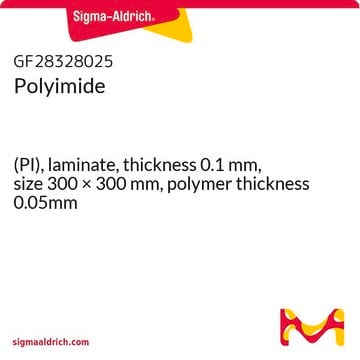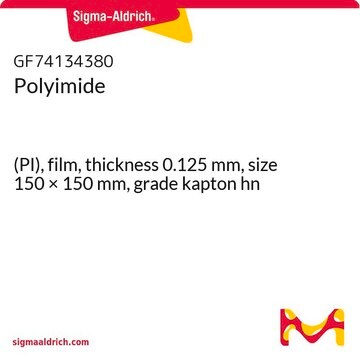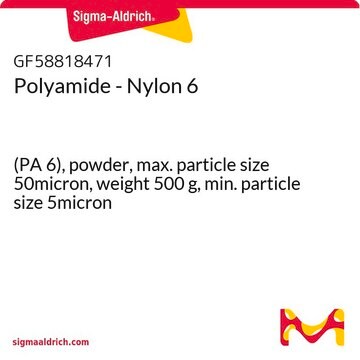Transportation information can be found in Section 14 of the product's (M)SDS.To access the shipping information for this material, use the link on the product detail page for the product.
23817
Résine d'étanchéité en polyimide
pkg of 5 g
About This Item
Produits recommandés
Conditionnement
pkg of 5 g
Technique(s)
gas chromatography (GC): suitable
Température de stockage
2-8°C
Description générale
Application
Autres remarques
Informations légales
Produit(s) apparenté(s)
Mention d'avertissement
Danger
Mentions de danger
Conseils de prudence
Classification des risques
Asp. Tox. 1 - Carc. 1B - Eye Irrit. 2 - Muta. 1B - Repr. 1B - Skin Irrit. 2 - STOT SE 3
Organes cibles
Respiratory system
Code de la classe de stockage
6.1C - Combustible acute toxic Cat.3 / toxic compounds or compounds which causing chronic effects
Classe de danger pour l'eau (WGK)
WGK 3
Point d'éclair (°F)
187.0 °F - closed cup
Point d'éclair (°C)
86.11 °C - closed cup
Faites votre choix parmi les versions les plus récentes :
Déjà en possession de ce produit ?
Retrouvez la documentation relative aux produits que vous avez récemment achetés dans la Bibliothèque de documents.
Les clients ont également consulté
-
What is the Department of Transportation shipping information for this product?
1 answer-
Helpful?
-
-
What is a GlasSeal connector?
1 answer-
A GlasSeal connector is a small piece of drawn glass tubing that is used to connect fused-silica capillary columns. When you want the seal to be permanent, you can use the 23817: Polyimide Sealing Resin
Helpful?
-
-
What is the solvent used with the Polyimide Sealing Resin, Product 23817?
1 answer-
The Supelco 23817: Sealing resin is solubilized in N-Methylpyrrolidone (Aldrich 443778). Once this liquid polymer solidifies on drying or curing with heat, it can only be degraded by hot N-Methylpyrrolidone or hot concentrated sulfuric acid.
Helpful?
-
Active Filters
Notre équipe de scientifiques dispose d'une expérience dans tous les secteurs de la recherche, notamment en sciences de la vie, science des matériaux, synthèse chimique, chromatographie, analyse et dans de nombreux autres domaines..
Contacter notre Service technique